Ever found yourself questioning your own reality after interaction with someone you know? Unintentional gaslighting can sneak into conversations, leaving you feeling disoriented and invalidated, even when no harm is intended.
Accidental, unintended or unconscious gaslighting in relationships can make you doubt your own thoughts, feelings, or even sanity. Someone’s words or actions can make you feel uncertain, dazed & confused without even realizing it.
Gaslighting, a term derived from a movie titled “Gaslight,” refers to the act of manipulating someone into doubting their own experiences and perceptions. But what is unintentional gaslighting?
Let’s explore this lesser-known concept and shed light on how it affects us and our relationship and what we can do to overcome it.
What is Unintentional Gaslighting?
Unintentional gaslighting refers to the act of engaging in behaviors and communication patterns unintentionally that invalidate or dismiss the thoughts, emotions, or experiences of others.
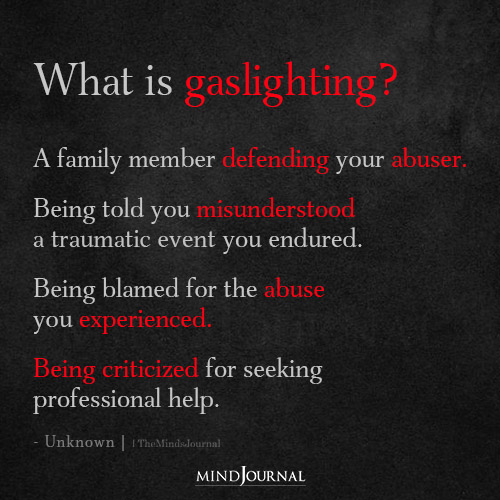
Unintentional gaslighting happens when someone inadvertently undermines your perceptions, making you doubt yourself. It’s like a subtle fog creeping into your mind, leaving you questioning what’s real and what’s not.
Unlike intentional gaslighting, which is driven by manipulation and control, unintentional gaslighting stems from a lack of awareness regarding its impact on others. You can experience this phenomenon with anyone, including your family members, romantic partner or spouse, friends, colleagues, or even random strangers, leading to significant emotional distress and confusion.
Related: Gaslighting Explained: Everything You Need To Know About Gaslighting
This can happen through dismissive remarks, minimizing emotions, or subtle manipulation. Despite lacking malicious intent, it can profoundly impact your sanity, sense of self and well-being, causing you to doubt your reality.
For instance, let’s say you express frustration about a project at work. Instead of validating your feelings, your colleague brushes it off, saying, “It’s not that bad, you’re just overreacting.”
Without realizing it, they’re unintentionally gaslighting you by invalidating your emotions and minimizing your experience. So, next time you feel like your reality is being questioned, trust your instincts, take a step back and analyze the situation practically.
Examples of Unintentional Gaslighting
Now that we have some idea about what is unintentional gaslighting, let us uncover some examples of unintentional gaslighting so that we can gain a better understanding of this barely-discussed experience –
1. Dismissing Emotions
Picture this: You are really stressed and on the brink of having a mental breakdown. Not knowing what to do, you pour your heart out to a close friend about the difficult situation you’re going through. However, your friend responds with, “You’re overreacting” or “It’s not that big of a deal.”
Although they may not intend to diminish your feelings, their response invalidates and dismisses your emotional experience, leaving you feeling unheard and misunderstood.
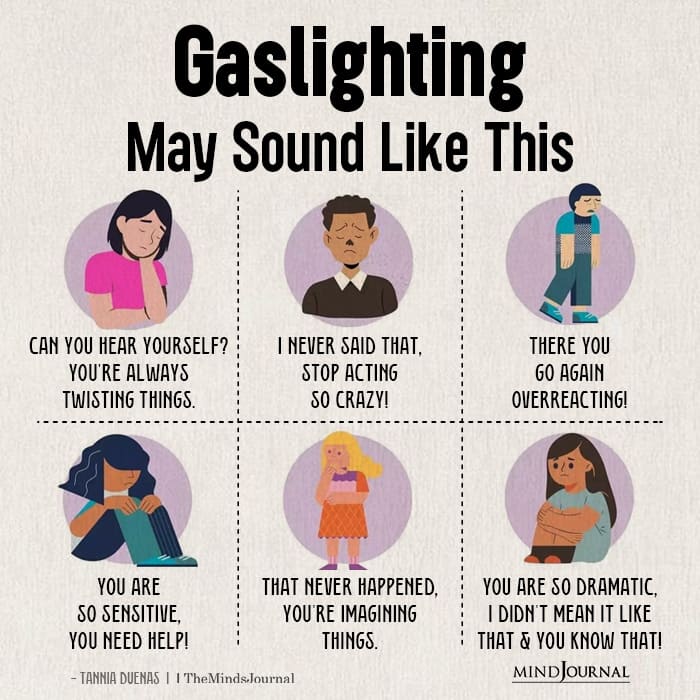
2. Undermining Memories
Remember that time you vividly recall an event, but someone close to you insists it never happened or recalls it differently? It’s not uncommon for unintentional gaslighters to
inadvertently chip away at your memory by contradicting or altering details of shared experiences, leaving you questioning the accuracy of your recollection.
3. Minimizing Concerns
Let’s say you express concerns or fears about a particular situation, only to have someone respond with statements like, “You’re just being paranoid” or “You worry too much.”
Such responses downplay your genuine worries, making you question the validity of your concerns and undermining your sense of judgment.
Related: The Truth About Gaslighting: 10 Things I Wish I’d Known Before It Happened To Me
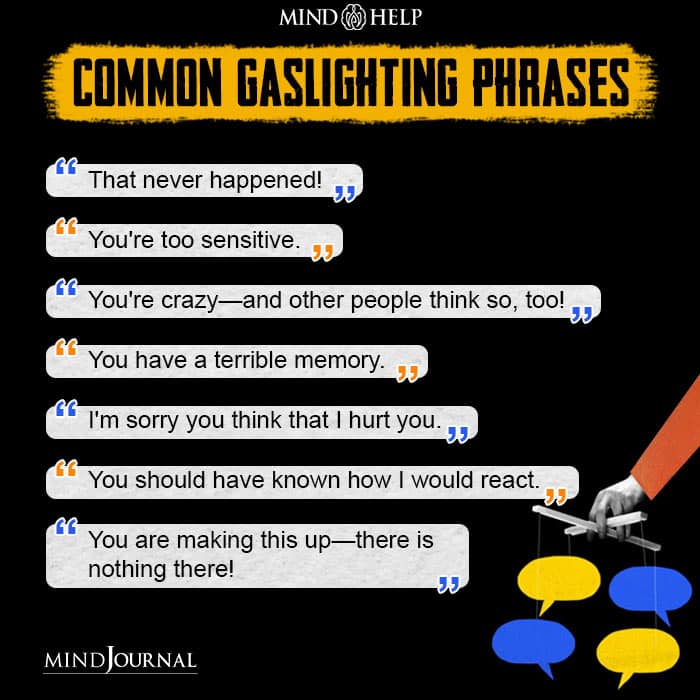
What Unconscious Gaslighting in Relationships Look Like
Unintentional gaslighting can significantly impact relationships, particularly romantic ones, where trust and emotional support are paramount. Here are a few scenarios that exemplify unintentional gaslighting in relationships:
1. Disregarding Boundaries
In a healthy relationship, each partner’s boundaries and limits should be respected. However, unintentional gaslighting can occur when one partner consistently disregards the other’s boundaries, dismissing them as insignificant or irrational. Over time, this erodes the victim’s sense of self and autonomy.
2. Constant Contradiction
Imagine consistently expressing your thoughts or opinions, only to have your partner contradict you without acknowledging your perspective. This constant invalidation can lead to self-doubt, anxiety, and frustration, ultimately straining the relationship.
3. Shifting Blame
Unintentional gaslighters may have difficulty taking responsibility for their actions, often resorting to blaming their partner for any issues or conflicts that arise. This constant shifting of blame can make the victim question their own role in the relationship’s challenges, fostering a sense of guilt and self-blame.
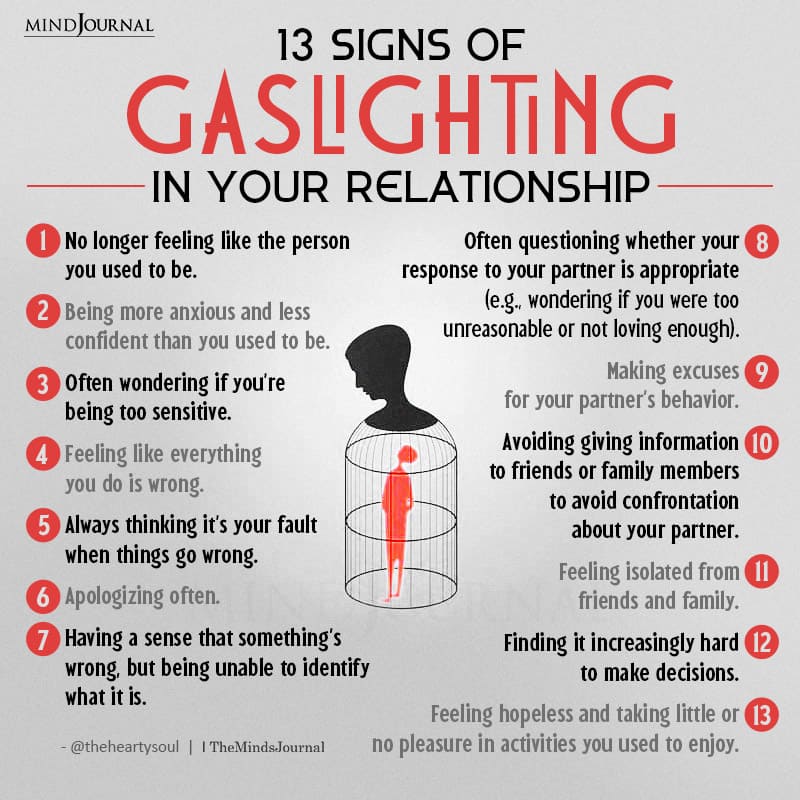
Coping With Unintentional Gaslighting: 6 Tips
Coping with unintentional gaslighting can be challenging, but there are strategies you can employ to navigate through these experiences:
1. Validate Your Feelings
Recognize and acknowledge your emotions as valid. Trust your instincts and intuition, even if others try to undermine or dismiss them. Remember that your feelings and experiences matter.
2. Seek Support
Reach out to trusted friends, family members, or a therapist who can provide a safe and non-judgmental space for you to express your thoughts and emotions. Sharing your experiences can help validate your reality and provide valuable perspective.
Related: Identifying Gaslighting Tactics: Types Of Gaslighting, Phases, And Common Phrases Of Gaslighting
3. Set Boundaries
Establish clear boundaries with the individuals who unintentionally gaslight you. Communicate assertively and express how their words or actions affect you. Reinforce the importance of respect and open dialogue in your relationships.
4. Practice Self-Care
Engage in activities that promote self-care and well-being. Take time for yourself, engage in hobbies, practice mindfulness or meditation, and prioritize your mental and emotional health.
5. Educate Yourself
Learn more about gaslighting and unintentional gaslighting. Understanding the dynamics and psychological mechanisms at play can help you gain clarity and equip you with tools to recognize and address these behaviors effectively.
6. Trust Your Support Network
Surround yourself with people who uplift and validate your experiences. Build a strong support network of individuals who respect and believe in you, providing a counterbalance to any unintentional gaslighting you may encounter.
Remember, coping with unintentional gaslighting is an ongoing process. Be patient with yourself as you navigate through these experiences, and remember that you deserve to be heard, validated, and respected.
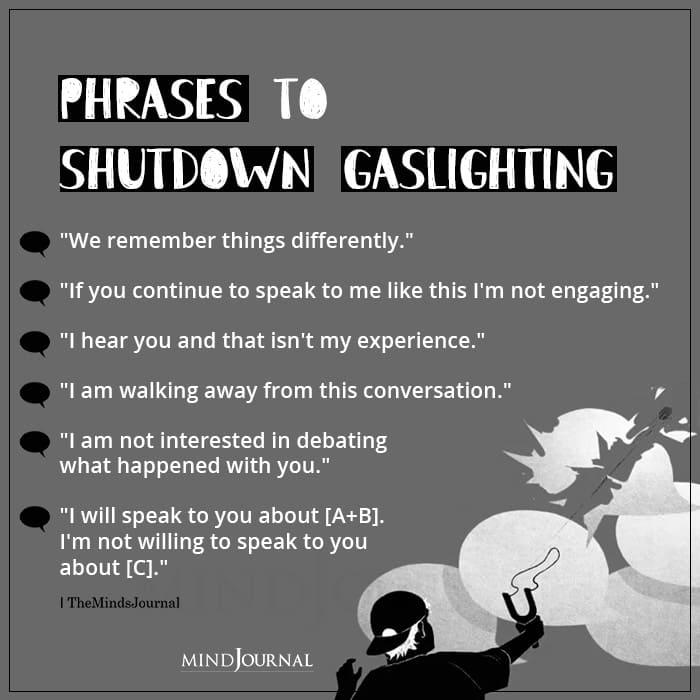
Takeaway
Unintentional gaslighting can cast shadows of doubt on our perceptions, leaving us questioning our own reality. By understanding this concept and recognizing its subtle manifestations, we can work towards nurturing healthier relationships and promoting empathy and understanding.
Let’s strive to be more mindful of our words and actions, ensuring that we uplift and validate the experiences of those around us. Together, we can create a world where gaslighting, intentional or unintentional, becomes a relic of the past.
Related: Gas Lighting – Something, everyone should know about. Are you a Victim Too?
Frequently Asked Questions (FAQs):
Why do I unconsciously gaslight?
Unconscious gaslighting may occur due to learned behaviors, lack of self-awareness, or unintentional reinforcement of invalidating communication patterns.
What is silent gaslighting?
Silent gaslighting refers to the use of non-verbal cues, manipulation, and passive-aggressive tactics to undermine and control someone’s perception of reality.
What happens when you ignore a gaslighter?
Ignoring a gaslighter can help protect your mental and emotional well-being, maintain your sense of self, and reduce their power to manipulate and control you.
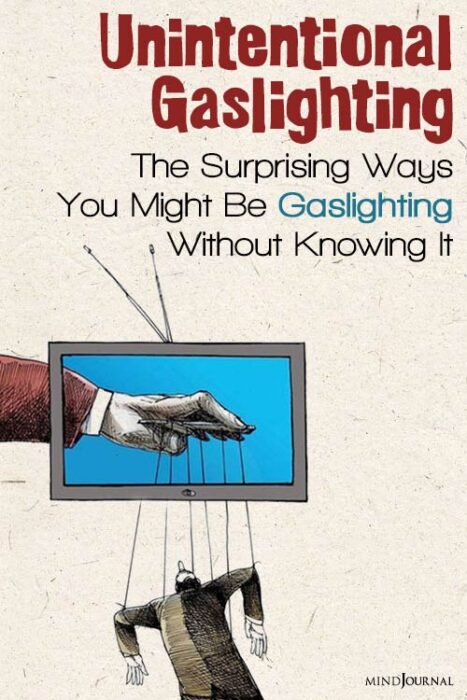


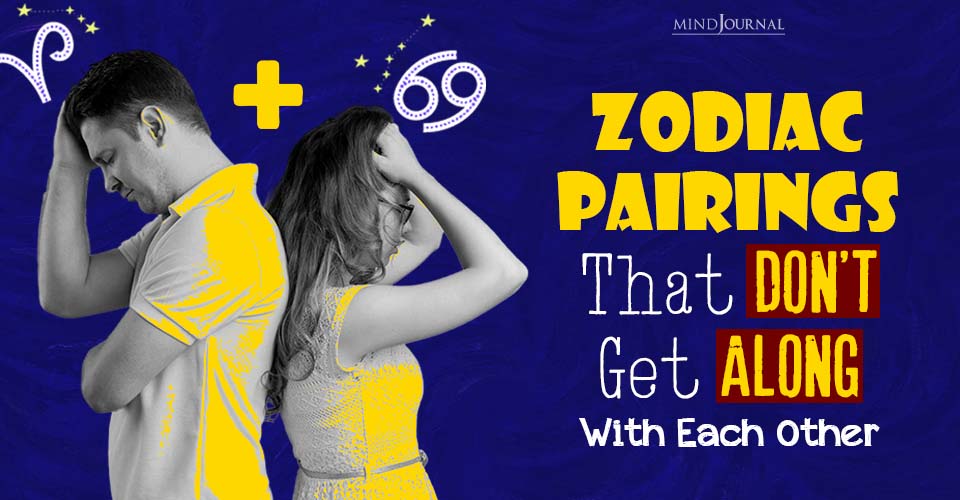




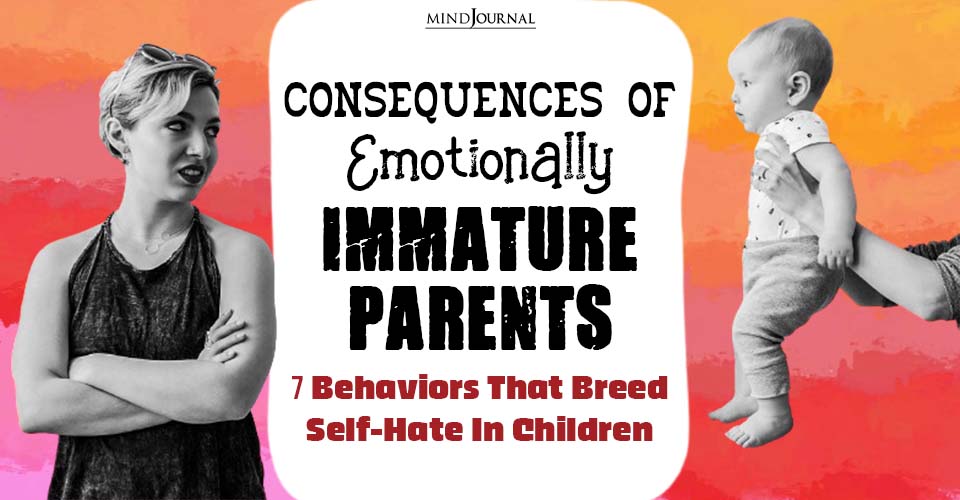
Leave a Reply
You must be logged in to post a comment.